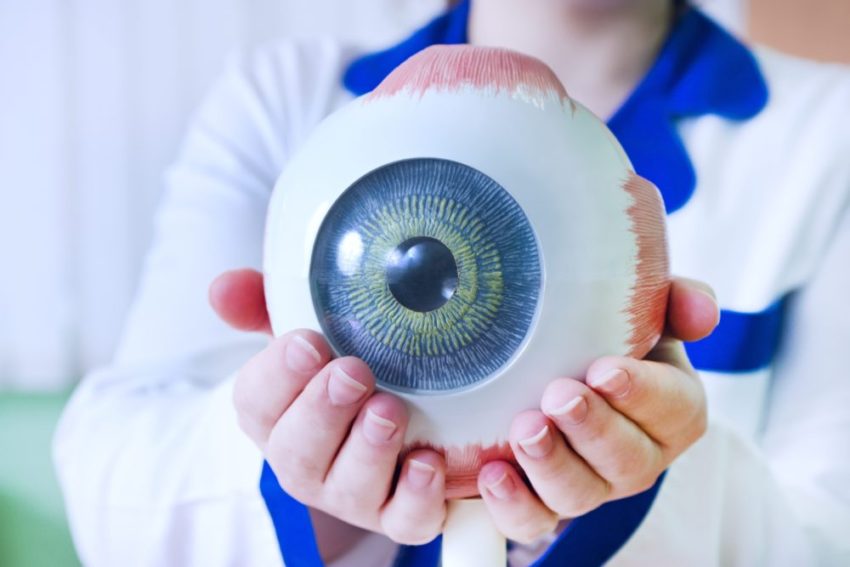Worldwide, cataracts cause more vision-related problems than any other eye condition or disorder. In fact, in the United States alone, an estimated 22 million Americans over the age of 40 have a cataract and the majority of people will develop a cataract over the course of their lifetime.
Despite cataracts being the most common cause of vision loss in aging Americans and though it would appear there is no clear way to prevent cataract development completely. It is wise to be aware of the causes and symptoms of cataract progression. As well as ways to mitigate or slow cataract development.
Read on to learn more.
What are Cataracts?
In brief, a cataract is the clouding of the eyes natural lens. This lens is primarily made up of water and protein and is structured behind the iris (the colored part of the eye). The lens is responsible for focusing light that enters the eye in order to produce clear and sharp images. A cataract is often the result of proteins in the lens that clump together as we age. This clouding affects vision by blocking and distorting light as it enters the eye. Cataracts typically develop slowly and may affect one or both eyes.
What Causes Cataracts?
The majority of cataracts are due to age-related changes in the lens of the eye. Cataracts affect more than half of all Americans over the age of 65. Nonetheless, studies have shown several other possible factors that may contribute to the development of cataracts.
Potential Causes of Cataract Development:
- Family history
- Ultraviolet radiation (UV light) from the Sun
- Prolonged use of steroid medications
- Physical eye injury
- High alcohol consumption
- Cigarette smoking
- Non-nutritious diet
There are 4 primary categories cataracts fall into:
Age-Related Cataract: The most common, these simply result from the aging process. People over the age of 40 years old should schedule regular eye exams to catch cataract development early.
Secondary Cataract: A cataract that may develop in people with certain health conditions, such as diabetes. Also, a term associated with a condition known as Posterior Capsule Opacification (PCO). PCO refers to a thickening or clouding of the lens capsule in the eye. The lens capsule is a thin membrane that houses the eye’s natural lens and is left intact after cataract surgery.
Congenital Cataract: These cataracts occur in babies at birth or develop during childhood. They may be caused by injury, infection, or problems stemming from development in the womb. These cataracts may or may not affect vision.
Traumatic Cataract: The formation of a cataract after an injury to the eye. May develop soon after or even years after injury.
What are the Symptoms of Cataracts?
Since most cataracts develop slowly, disruption of vision early on is difficult to detect. But over time, cataracts will ultimately interfere with your eyesight.
Signs and symptoms of cataracts include:
- Clouded or blurred vision
- Diminished night vision
- Increased sensitivity to light and glare
- Frequent changes to eyeglasses prescription
- Faded or yellowed colors
- Double vision
At first, the use of increased lighting and eyeglasses can help alleviate the loss of visual acuity. However, if impaired vision begins to interfere with your daily activities or your ability to drive, read, or recognize faces, you may require cataract surgery. Fortunately, cataract surgery is one of the most common procedures performed in the United States, with almost 98% of patients experiencing improved vision.
Can You Prevent Cataracts?
Though there is no definitive proof that cataract development may be prevented, studies have suggested there are smart lifestyle choices that may slow the progression of cataract development. These are simply best practices or healthy choices that should be considered.
- Regular check-ups
- Healthy diet
- Limited alcohol consumption
- UV protection
- Quit smoking
Research has linked eye-friendly nutrients such as lutein and zeaxanthin, omega-3 fatty acids, vitamin C, vitamin E, and zinc to reducing the risk of certain eye diseases, including cataracts. Ultimately, a healthy diet and proper self-care may help to promote healthy eyes.
Consult the Cataract Experts at ADV
We recommend adults over the age of 40 to schedule regular comprehensive eye examinations to better track the health of their eyes. While many factors are unavoidable, early diagnosis and a healthy lifestyle will be key to prolonging clear healthy vision.
If you have experienced the symptoms of cataracts or wish to learn more about them, please call or contact online the experienced and compassionate staff at ADV Vision Centers. Let us answer any questions you may have and educate you about cataracts and treatment options.








